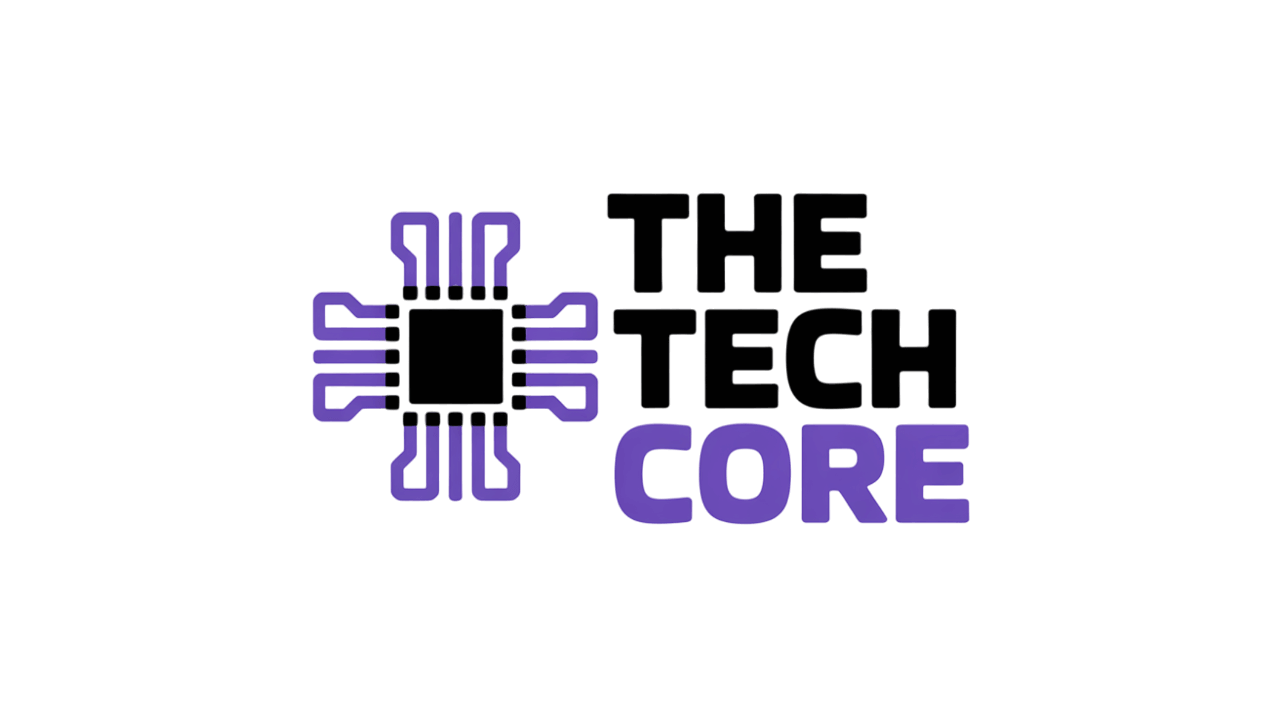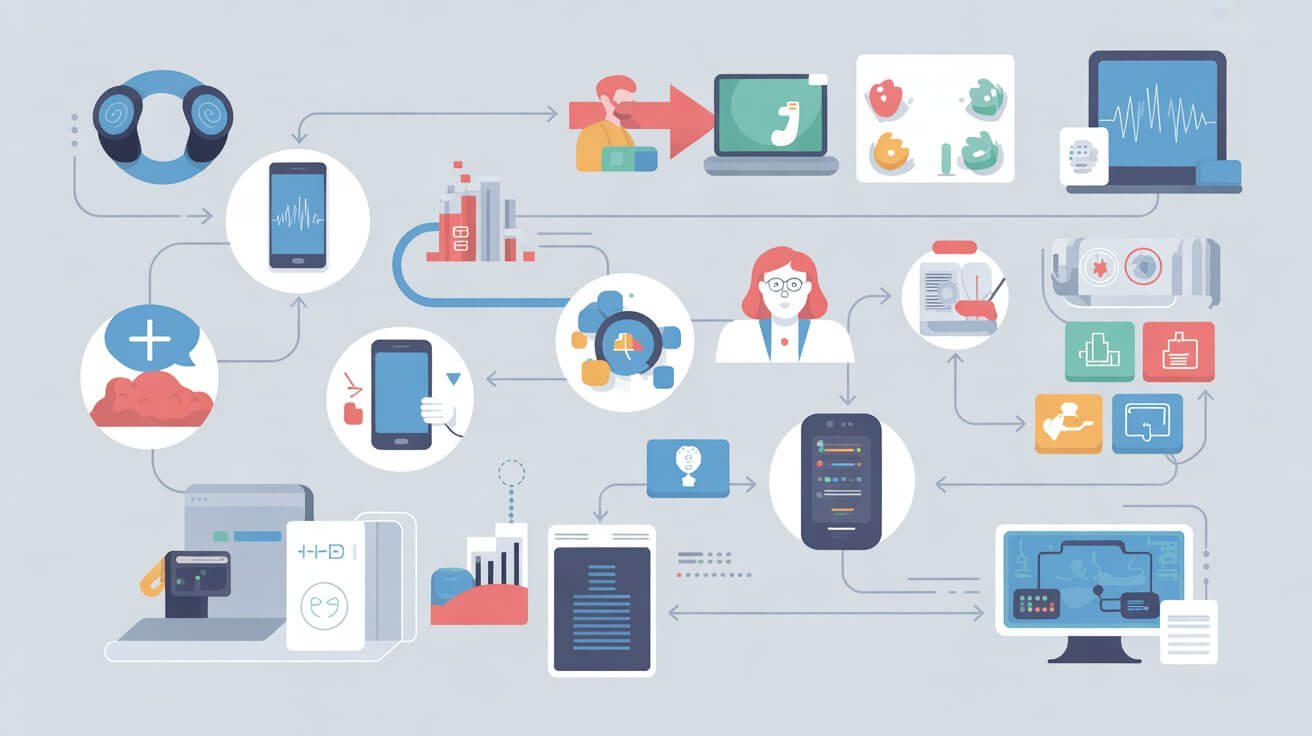The Trump administration just announced something that’s making privacy experts lose sleep. Furthermore, a massive digital health tracking system involving over 60 tech giants is now rolling out across America. Meanwhile, health tracking privacy risks have never been more urgent to understand, especially when your most sensitive medical data could end up in corporate hands without your full knowledge.
This new system promises convenience—imagine your Apple Watch talking directly to your doctor’s office, or getting personalized health advice based on your complete medical history. However, digital privacy advocates are sounding alarm bells about what this really means for ordinary Americans. Additionally, the health tracking privacy risks go far beyond what most people realize.
The Trump Administration’s Digital Health Empire
Last week, President Trump unveiled his “Making Health Technology Great Again” initiative at the White House. Moreover, this isn’t just another government tech project—it’s a complete reshaping of how your health information moves through the digital world.
The system involves heavy hitters like Amazon, Google, Apple, and OpenAI, plus major healthcare companies like UnitedHealth Group and CVS Health. Consequently, your health data won’t just live in one place anymore. Instead, it’ll flow between apps, hospitals, insurance companies, and tech platforms in ways we’ve never seen before.
Here’s how it works: Once you opt in, your information gets shared across all participating apps and health systems. Therefore, your iPhone’s step counter could access your lab results from last week’s doctor visit. Similarly, an AI chatbot might analyze your sleep patterns alongside your prescription history to give you “personalized advice.”
“For decades America’s health care networks have been overdue for a high tech upgrade,” President Trump said during the White House event, promising the system will “bring health care into the digital age.”
But experts aren’t buying the rosy picture. Lawrence Gostin, a Georgetown University law professor who specializes in public health, warns: “There are enormous ethical and legal concerns. Patients across America should be very worried that their medical records are going to be used in ways that harm them and their families.”
The Hidden Dangers of Health Tracking Privacy Risks
The health tracking privacy risks in this new system go way deeper than most people think. Furthermore, privacy experts have identified several concerning issues that could affect millions of Americans.
Your Data Becomes a Corporate Asset
First, once your health information enters this ecosystem, it becomes incredibly valuable to companies. Moreover, Jeffrey Chester at the Center for Digital Democracy calls it “an open door for the further use and monetization of sensitive and personal health information.”
Think about it this way: Tech companies already make billions from advertising based on your shopping habits and web browsing. Now imagine what they could do with your medical diagnoses, prescription history, and fitness data. Therefore, the potential for profit is enormous, but the health tracking privacy risks for consumers are equally massive.
The “All Data Is Health Data” Problem
Here’s something that’ll surprise you: Experts uniformly indicated that there are no clear distinctions between health-related and non–health-related data and that all data can become health data. Consequently, information you never considered “medical” could reveal intimate details about your health.
For example, researchers have shown that your location data can identify if you visit abortion clinics, your social media posts can reveal mental health struggles, and even your shopping patterns can predict health conditions. Additionally, data brokers are now commodifying aggregated digital data to fuel predictive analytics that can be applied in different settings (eg, health risk scores).
This research from the National Institutes of Health demonstrates how traditional privacy protections like HIPAA may be inadequate for today’s digital landscape.
The Invisibility Factor
One of the most troubling health tracking privacy risks is what experts call “invisibility.” An expert noted, “It would be very, very odd if someone followed you around…making notes of everywhere you went…and how much money you spent and what you saw and who you interacted with…We would call it stalking, right? But in the digital world, that’s just common behavior.”
Most people have no idea how extensively their data is being tracked, collected, and analyzed. Furthermore, this lack of awareness makes it impossible for consumers to make informed decisions about their privacy.
Real-World Examples: When Health Privacy Goes Wrong
Let’s look at what happens when health tracking privacy risks become reality. Moreover, we don’t have to imagine these scenarios—they’re already happening.
Hospital Website Tracking Scandals
A 2023 study revealed shocking findings about hospital websites. Specifically, 98.6 percent of more than 3,700 analyzed hospital website home pages had at least one third-party data transfer, and 94.3 percent had at least one third-party cookie. Additionally, Alphabet was the most common tracking entity among the hospitals in the sample, accounting for 98.5 percent of all third-party transfers on hospital site home pages.
This means that simply visiting your hospital’s website could share your browsing behavior with Google, potentially revealing which medical departments you’re researching or what conditions you’re looking up. The Federal Trade Commission has issued warnings about these privacy risks.
The Facebook Pixel Problem
Meta’s tracking technology has been found on healthcare websites, quietly collecting data about patient interactions. Furthermore, this technology can track Http headers, button click data, form field names, and other values without users knowing.
Imagine scheduling an appointment with a psychiatrist online, only to discover later that Facebook received data about your visit to that specific page. Consequently, you might start seeing mental health-related ads, revealing private information to anyone who sees your screen.
The Department of Health and Human Services has issued specific guidance about these tracking technologies and their HIPAA implications.
Government Data Sharing Controversies
The current administration has already “freely shared highly personal data about Americans in ways that have tested legal bounds,” according to privacy experts. Moreover, Andrew Crawford from the Center for Democracy and Technology raises concerns about “what circumstances, if any, the government would be able to access patients’ health data through this initiative.”
What You Can Do to Protect Yourself
Despite the overwhelming health tracking privacy risks, you’re not powerless. Furthermore, there are concrete steps you can take to protect your sensitive health information.
Read the Fine Print Carefully
Before opting into any health tracking system, read every word of the privacy policy. Additionally, look for these red flags:
- Vague language about data sharing with “partners”
- Permission to use your data for “improving services” (often code for marketing)
- Unclear retention policies
- Broad consent for future uses of your data
Limit What You Share
You don’t have to share everything to get benefits from health technology. Moreover, consider which data is truly necessary for the service you want. For example, a fitness app doesn’t need access to your prescription history to count your steps.
Use Privacy-Focused Alternatives
Research health apps and services that prioritize privacy. Furthermore, look for companies that:
- Don’t sell user data
- Use strong encryption
- Allow you to delete your data
- Have clear, straightforward privacy policies
Stay Informed About Your Rights
Your rights vary depending on where you live and which services you use. Additionally, some states like Washington and New York have enacted stronger health privacy laws than federal HIPAA protections. Therefore, understanding your local rights can help you make better decisions.
You can learn more about your federal privacy rights through the Office for Civil Rights at HHS, which enforces health privacy regulations.
The Future of Health Privacy in America
The health tracking privacy risks we’re seeing today are just the beginning. Furthermore, as AI technology advances and more devices collect health data, the challenges will only grow more complex.
The Regulatory Gap
“The line between just general digital data and health data is going to become so blurred…and the regulations aren’t going to catch up,” experts warn. Consequently, current laws like HIPAA weren’t designed for today’s digital ecosystem and may become “inadequate and obsolete.”
The Need for Federal Action
Privacy experts argue that the current patchwork of state laws creates compliance complexity. Moreover, “without harmonized standards, the risk of data breaches, algorithmic bias, re-identification, which all lead to the loss of public trust threatens both” individuals and the healthcare system overall.
Organizations like the Electronic Frontier Foundation continue to advocate for stronger federal privacy protections that can keep pace with technological developments.
What’s at Stake
The decisions we make now about health tracking privacy risks will shape healthcare for generations. Furthermore, we’re at a crossroads where convenience and innovation must be balanced against fundamental privacy rights.
If we get this wrong, we could end up in a world where your health data determines your insurance rates, employment opportunities, or social relationships. Additionally, the potential for discrimination based on health information could affect the most vulnerable populations disproportionately.
Taking Control of Your Health Data Future
The Trump administration’s digital health tracking system represents both unprecedented opportunities and serious health tracking privacy risks. Moreover, while the promise of seamless, AI-powered healthcare is appealing, the privacy trade-offs are significant and permanent.
You don’t have to choose between good healthcare and personal privacy, but you do need to stay informed and make deliberate choices about your data. Furthermore, as this system rolls out, remember that every piece of health information you share becomes part of a permanent digital record that could be used in ways you never intended.
The future of healthcare privacy isn’t predetermined—it’s being written right now by the choices we make as consumers, the pressure we put on companies, and the laws our representatives pass. Therefore, staying educated about health tracking privacy risks isn’t just about protecting yourself—it’s about protecting the privacy rights of everyone who comes after us.
Your health data is among the most intimate information about you. Consequently, make sure you’re comfortable with where it’s going and how it’s being used, because once it’s out there, there’s no getting it back.








